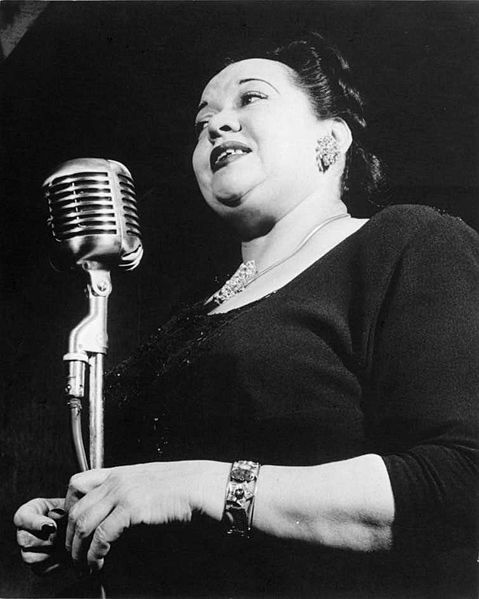Mildred Bailey (Mildred Bailey)

Entertainer. She is best remembered as a popular jazz singer in the 1930s, known by the names “The Queen of Swing,” “The Rockin’ Chair Lady,” and “Mrs. Swing”. She was born Mildred Rinker into a musical family, the oldest of four children. Her father played the fiddle and called square dances and her mother, who was part Coeur d’Alene Indian, played the piano and taught her how to play and sing. They lived on a farm on a reservation until she was five, when the family moved to Spokane, Washington. When her mother died, her father married one of his housekeepers, a mean-spirited woman who made her life miserable. When she was 17, she left home and moved to Seattle, Washington where she worked as a sheet music demonstrator at the F.W. Woolworth Company. She married and soon divorced her first husband, salesman Ted Bailey, but kept his last name professionally because it sounded more American that her birth name. She then married Benny Stafford and with his help, she became an established blues and jazz singer on the West Coast. In 1925 she was based in Los Angeles, California where she was a headliner at a Hollywood nightclub. She obtained work for her brother, vocalist and composer Al Rinker, and his partner Bing Crosby. Crosby then helped her by introducing her to bandleader and orchestra director Paul Whiteman. She sang with Paul Whiteman’s band from 1929 to 1933 and debuted on his popular radio program with her version of “Moaning Low” and public reaction was immediate. In late 1931 she started recording with Whiteman. Her first two records were as an uncredited vocalist for an Eddie Lang Orchestra session in 1929 (“What Kind O’ Man Is You?,” an obscure Hoagy Carmichael song that was only issued in the England) and a 1930 recording of “I Like To Do Things For You” for Frankie Trumbauer. She was Whiteman’s popular female vocalist through 1932 when she left the band due to salary disagreements. She then recorded a series of records for Brunswick in 1933 (accompanied by The Dorsey Brothers), as well an all-star session with Benny Goodman’s studio band in 1934 that featured Coleman Hawkins. In the mid-1930s she recorded with her third husband, vibraphonist Red Norvo. They became a dynamic couple, earning the nicknames “Mr. and Mrs. Swing.” From 1936 to 1939 Norvo recorded for Brunswick (with Bailey as primary vocalist) and Bailey recorded her own set of recordings for Vocalion, often with Norvo’s band. Some of her recordings featured members of Count Basie’s band. During this time she made 19 notable recordings, the most popular being “Please Be Kind” (1938, which became number one for two weeks), “Says My Heart” (1938, which became number one for four weeks), and “Darn That Dream” (1939, which made number one for a week in March 1940). Despite her divorce from Norvo in the late 1930s, she continued to record with him until 1945. Her widespread recognition never translated into great commercial success, and when Decca failed to renew her contract in 1942, no other major label showed an interest in taking her on. Following World War II, she suffered from diabetes and depression, and in 1947 she retired to a farm in upstate New York, where she often lived on the charity of her old friends from her musical days to help pay her medical bills. She died of heart failure that was brought on by diabetes at the age of 44. In 1989 she was inducted into the Big Band and Jazz Hall of Fame. She was also a sister to lyricist Charles Rinker. (bio by: William Bjornstad) Family links: Spouse: Red Norvo (1908 – 1999)
Born
- February, 27, 1907
- USA
Died
- December, 12, 1951
- USA
Other
- Cremated

